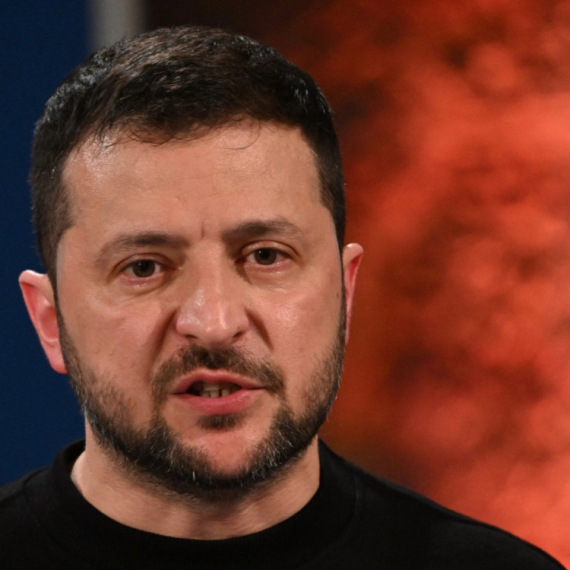Macedonian leaders agree reforms
Macedonia's parliament is to vote on 14 reform bills, crucial for the country's NATO membership.
Saturday, 15.12.2007.
15:07

Macedonia's parliament is to vote on 14 reform bills, crucial for the country's NATO membership. The ballot will take place in the week after the new year’s holidays, following a deal agreed by the main political parties. Macedonian leaders agree reforms At their meeting on Thursday, leaders of the governing center-right VMRO-DPMNE and the opposition Social Democrats, both accompanied by their ethnic Albanian coalition partners, also agreed on completing the membership of the Judiciary Council, another key NATO demand. Parliament’s vote for the last member of the Council is expected next week, after the VMRO-DPMNE changed its mind and agreed to support the judge nominated by President Branko Crvenkovski. “We have yet again made a concession”, VMRO-DPMNE’s leader, Prime Minister Nikola Gruevski, told media after the inter-party meeting. Up until Thursday the ruling party opposed Crvenkovski’s choice, saying that the fact that both Council members he had proposed came from Macedonia’s ethnic minority groups might be unconstitutional. The judge in the disputed nomination is of Turkish ethnic background. In early December, the parliament approved a number of reform laws required to pave the way to NATO membership. With little discussion, the deputies voted for bills on Public Prosecution, the Public Prosecutors’ Council and on an Inter-ethnic Committee. The progresses of Macedonia’s reforms had stalled for nearly a year due to various disagreements among the country’s top politicians, which in turn caused growing concern among NATO and EU officials. The Assistant Secretary-General for Political Affairs and Security Policy of NATO, Martin Erdman, last month was among the latest to note that speeding up reforms in the next few months was going to be decisive for Macedonia’s NATO membership bid. In early November the European Commission in its report on Macedonia’s reform progress explicitly said that the main obstacle towards better implementation of the reforms was the lack of “sustainable political dialogue”, between the country’s politicians. Macedonia is hoping, along with Albania and Croatia, to receive a formal invitation to join the Alliance at NATO’s summit in Bucharest, due in April 2008.
Macedonian leaders agree reforms
At their meeting on Thursday, leaders of the governing center-right VMRO-DPMNE and the opposition Social Democrats, both accompanied by their ethnic Albanian coalition partners, also agreed on completing the membership of the Judiciary Council, another key NATO demand.Parliament’s vote for the last member of the Council is expected next week, after the VMRO-DPMNE changed its mind and agreed to support the judge nominated by President Branko Crvenkovski.
“We have yet again made a concession”, VMRO-DPMNE’s leader, Prime Minister Nikola Gruevski, told media after the inter-party meeting.
Up until Thursday the ruling party opposed Crvenkovski’s choice, saying that the fact that both Council members he had proposed came from Macedonia’s ethnic minority groups might be unconstitutional.
The judge in the disputed nomination is of Turkish ethnic background.
In early December, the parliament approved a number of reform laws required to pave the way to NATO membership.
With little discussion, the deputies voted for bills on Public Prosecution, the Public Prosecutors’ Council and on an Inter-ethnic Committee.
The progresses of Macedonia’s reforms had stalled for nearly a year due to various disagreements among the country’s top politicians, which in turn caused growing concern among NATO and EU officials.
The Assistant Secretary-General for Political Affairs and Security Policy of NATO, Martin Erdman, last month was among the latest to note that speeding up reforms in the next few months was going to be decisive for Macedonia’s NATO membership bid.
In early November the European Commission in its report on Macedonia’s reform progress explicitly said that the main obstacle towards better implementation of the reforms was the lack of “sustainable political dialogue”, between the country’s politicians.
Macedonia is hoping, along with Albania and Croatia, to receive a formal invitation to join the Alliance at NATO’s summit in Bucharest, due in April 2008.















Komentari 9
Pogledaj komentare